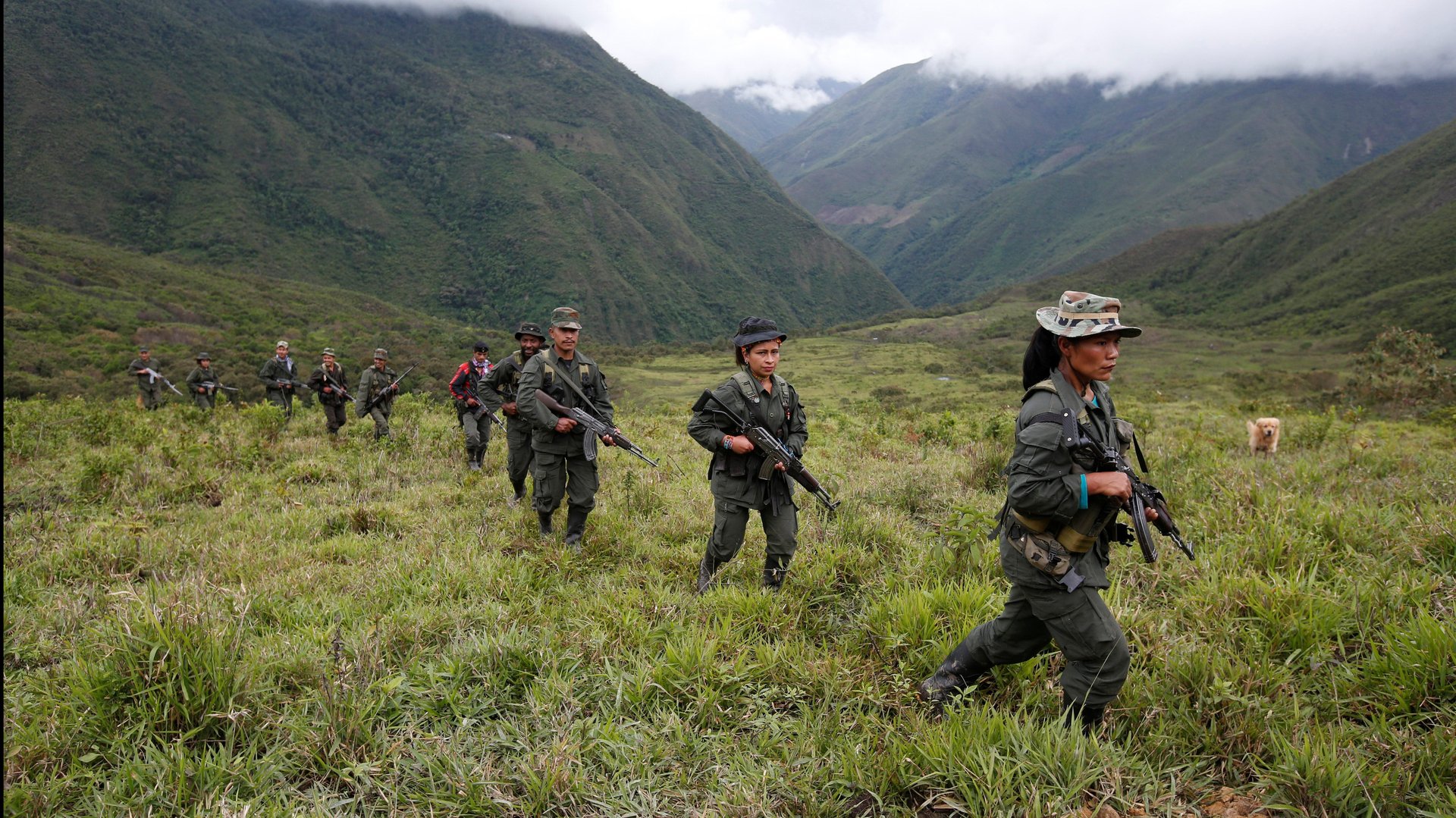Why is Human Rights Watch unbothered by the derailment of Colombia’s historic peace deal?
Colombians this week stunned the pollsters and rejected a peace agreement that would have ended more than 50 years of civil war. While many observers assessed the Oct. 2 plebiscite vote as a huge blow to the peace process between the government and the FARC guerrilla group, the NGO Human Rights Watch is taking a more sanguine view of the results.


Colombians this week stunned the pollsters and rejected a peace agreement that would have ended more than 50 years of civil war. While many observers assessed the Oct. 2 plebiscite vote as a huge blow to the peace process between the government and the FARC guerrilla group, the NGO Human Rights Watch is taking a more sanguine view of the results.
The “no” vote means that the government must attempt to renegotiate the terms of peace, which creates an opening to revisit provisions in the deal that Human Rights Watch said weren’t tough enough on FARC fighters. The New York-based non-profit, which monitors human rights abuses around the world, had strongly argued against the provisions in the weeks leading up to the plebiscite, making its case on television and through newspaper editorials. Human Rights Watch Americas director José Miguel Vivanco referred to the agreement’s ”grotesque foundations on impunity” in one interview, and called its sanctions “a tasteless joke on victims” in another. (Both links in Spanish.)
The justice section of the deal, known as the victims’ agreement, was its most controversial. The government had to get the FARC to pay for the atrocities they committed, while at the same time convincing the fighters to lay down their arms. It therefore had to offer something more palatable than a jail cell, to the chagrin of many Colombians who believe the FARC deserves little else. ”There has not been any peace agreement where a politically motivated armed group has agreed to go to prison,” notes Kristian Herbolzheimer, director of the Colombia program at Conciliation Resources, an international advisory group on conflict resolution.
What the government and guerrilla leaders came up with over several years of negotiations was a transitional justice system under which repentant fighters on both sides would pay for their crimes by doing community work while having their movements restricted. Colombian president Juan Manuel Santos called the end result an imperfect agreement, but preferable to a perfectly terrible war.
Vivanco says that while it would have been impossible to apply the full criminal code to the FARC, the sanctions for fighters fell well short of being proportional to their crimes, as called for by international law. “The FARC has to realize that international standards have changed and that any sustainable ending to the peace process needs to involve meaningful punishment,” he said.
Human Rights Watch executive director Kenneth Roth expressed similar sentiments after the plebiscite’s results were clear.
This isn’t that different from the arguments made by the “no” campaign, led by Alvaro Uribe, a former president whose policies Human Rights Watch has condemned. He, too, talked about the impossibility of building peace with impunity (Spanish).
Vivanco says Human Rights Watch’s positions are grounded on principles, regardless of what Uribe or anyone else thought of the agreement. His group has criticized Uribe’s efforts to get military members off the hook for abuses and, unlike him, has publicly supported the signing of the peace agreement despite its strong reservations on its justice component. “Our job is to rigorously evaluate whether Colombia is upholding its obligations under international law,” he said.
But some blame Human Rights Watch for contributing to the unexpected defeat of the “yes” side. It offered ”the most dire reading of the agreement possible,” New York University history professor Greg Grandin wrote in the The Nation. (Vivanco called that characterization “a pretty absurd theory.”) Others had underscored the potential damage of Human Rights Watch’s less-than-subtle tone before the vote, as Grandin points out in his article. Adam Isacson, an analyst at the Washington Office on Latin America, another international advocate for human rights, likened Human Rights Watch’s approach toward Colombia’s peace negotiations to driving a car off a cliff instead of looking under its hood.
It’s going to be impossible to known what role Human Rights Watch played in the final tally. But the criticisms it launched against the justice provisions in the deal were loud enough to reach Santos, whose administration responded to them in a letter (Spanish) to Vivanco.
What is clear is that for many of the civil war’s victims, the prospect of peace trumped the specific terms of the deal—voters in the bulk of Colombia’s most war-torn regions overwhelmingly voted “yes” (Spanish) in the plebiscite. Their priorities now must bend to the will of the majority.